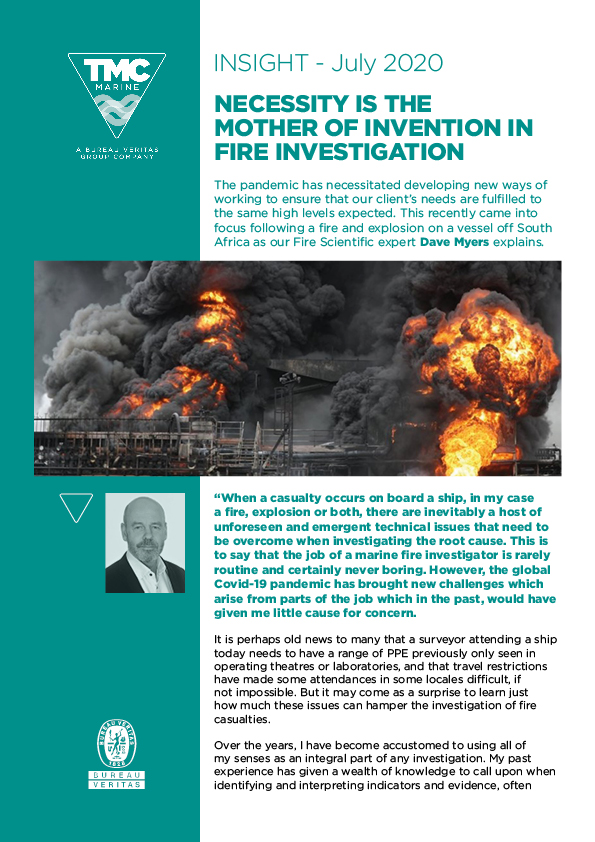July 2020
The pandemic has necessitated developing new ways of working to ensure that our client’s needs are fulfilled to the same high levels expected. This recently came into focus following a fire and explosion on a vessel off South Africa as our Fire Scientific expert Dave Myers explains.
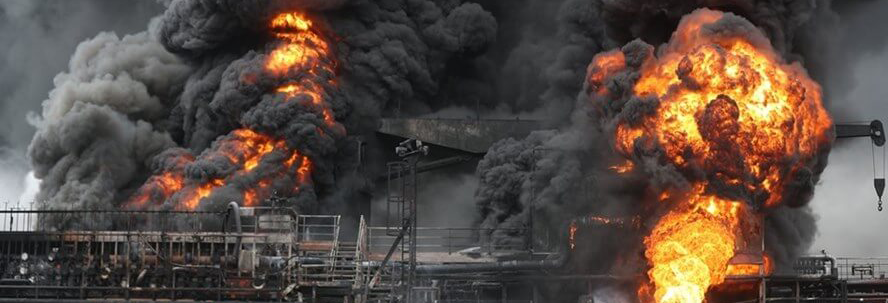
“When a casualty occurs on board a ship, in my case a fire, explosion or both, there are inevitably a host of unforeseen and emergent technical issues that need to be overcome when investigating the root cause. This is to say that the job of a marine fire investigator is rarely routine and certainly never boring. However, the global Covid-19 pandemic has brought new challenges which arise from parts of the job which in the past, would have given me little cause for concern.
It is perhaps old news to many that a surveyor attending a ship today needs to have a range of PPE previously only seen in operating theatres or laboratories, and that travel restrictions have made some attendances in some locales difficult, if not impossible. But it may come as a surprise to learn just how much these issues can hamper the investigation of fire casualties.
Over the years, I have become accustomed to using all of my senses as an integral part of any investigation. My past experience has given a wealth of knowledge to call upon when identifying and interpreting indicators and evidence, often when these are not immediately obvious or apparent. Whilst it may seem obvious that the way something looks can tell you a lot about the cause of a fire or explosion, for the experienced investigator just as much can be gauged from touch and from smell. If not able to be there in person, the investigation may well be obstructed or delayed.
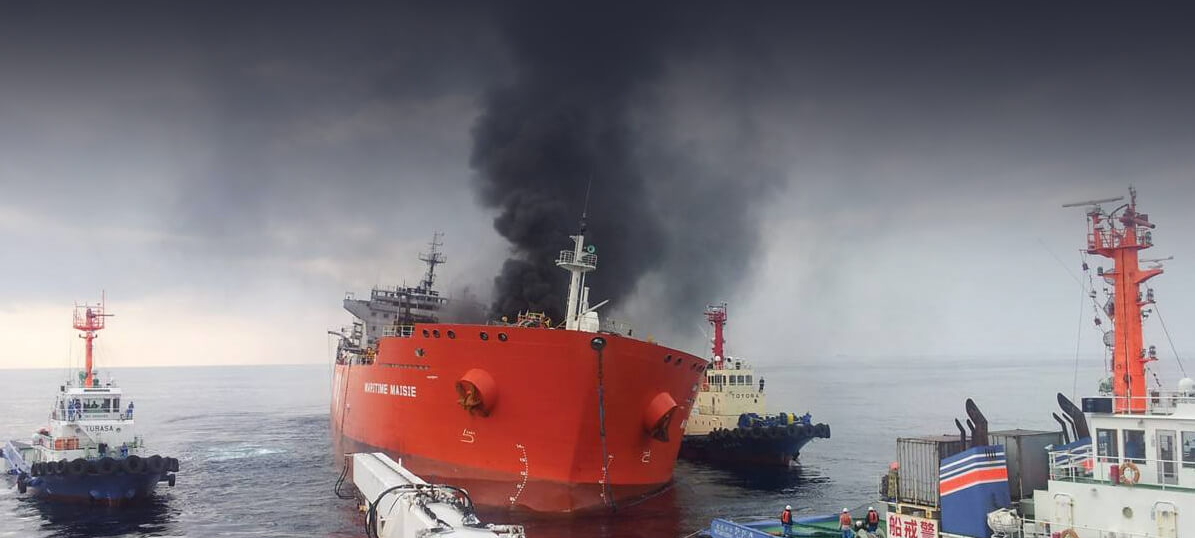
However, it is said that necessity is the mother of invention, and during investigation of a recent fire and explosion on a vessel off South Africa just such a necessity arose.
Appointed as the shipowner’s expert, I was prevented from personally travelling to the casualty by Covid restrictions. As such it was first necessary to arrange for a surveyor from within TMC’s global network to attend in my place. Fortunately, I was able to enlist the support of not one but two experienced surveyors based in South Africa, to travel to the vessel and act in my proxy.
With the surveyors on site the next step was to direct their inspections so as to establish the sequence of events and cause. In practice this required almost continual two way communication with me providing direction, advice and support, whilst the surveyors provided continual feedback on their observations backed up by diagrams, photographs and video footage. The tools we have available today which permit video calling in addition to the ready transmission of photo and video footage all proved invaluable.
By correctly targeting their inspections and analysing the output, I was able to develop an understanding of the various patterns of damage, for example, distortion to the ship’s steelwork, displacement of items, heat and smoke patterns. Gaining this understanding is critical to interpreting the indicators and thereafter, forensically reconstructing the dynamics of the events.
Although there are more advanced remote survey systems on the market, on the basis of my experience, I find that a stable connection is most important asset in the remote inspector’s armoury.
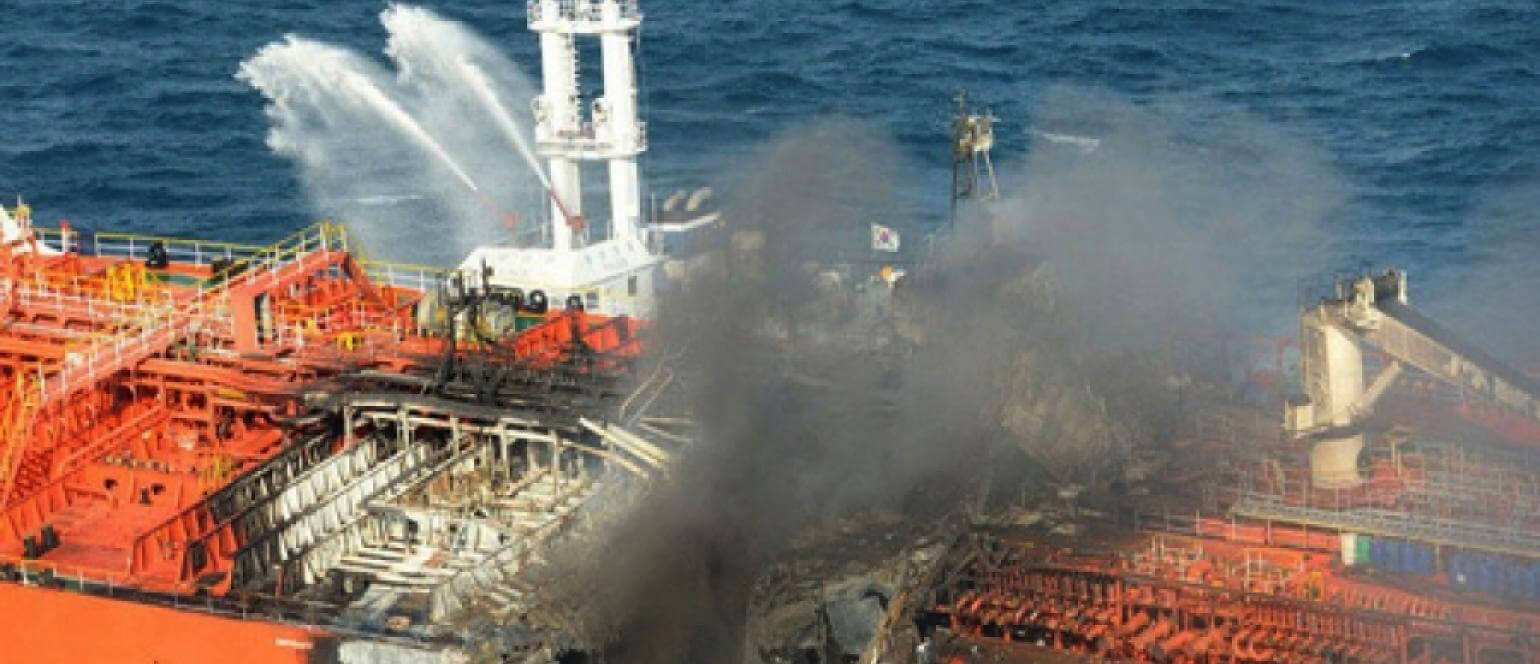
Through the course of the investigation, our team was constantly learning and adapting whilst developing new ways to work. I think this kind of pragmatism and innovation will be key as we move into the new normal. Certainly the lessons I learned will inform my future investigations and whilst I remain of the view that there is no true substitute for first hand observation, I am confident that TMC has the skills, systems and reach to serve our client’s needs whatever the travel restrictions in place.
With the fire damaged cargo discharged and inspections complete, the client’s ship was able to resume her voyage. The evidence collected by our team has already informed my initial views on the cause and will be the basis upon which I form my ultimate conclusions on the cause of the incident.
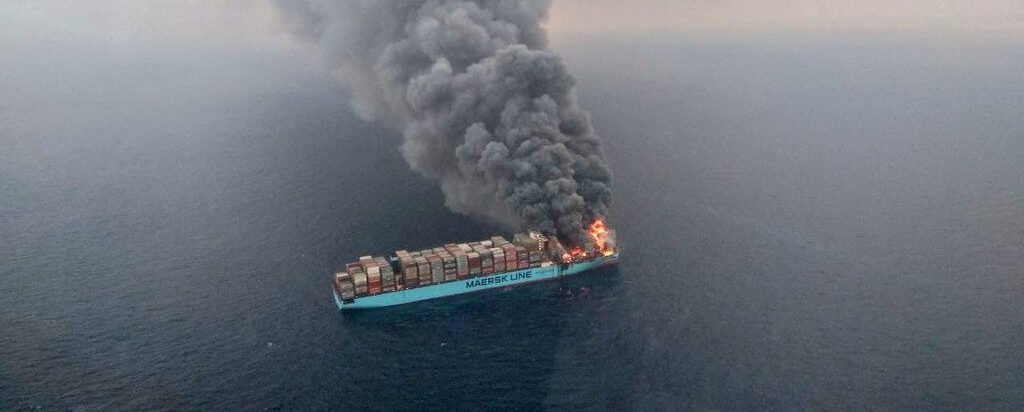
Image: Indian Coastguard
Overall this was a job well done in challenging circumstances and a client ultimately satisfied.”
DAVE MYERS [email protected]
UK: +44 (0) 7547 137 001
SG: +65 9783 7754
